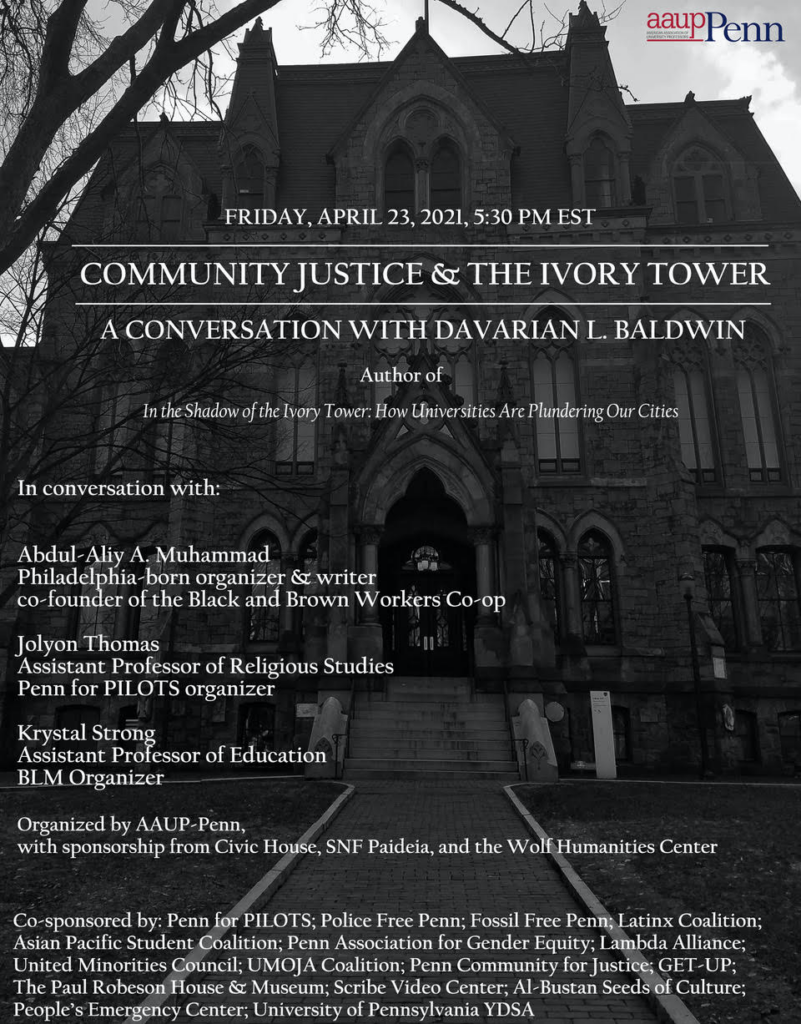Please join us for “Community Justice & The Ivory Tower: A Conversation with Davarian L. Baldwin” (4/23, 5:30pm)
Please join us on Friday, April 23, 2021 at 5:30pm for
Community Justice & The Ivory Tower: A Conversation with Davarian L. Baldwin
(register here): tinyurl.com/community-justice-423
This remote panel discussion will focus on the university’s role in gentrifying and policing neighborhoods in cities across the country, with a focus on Penn and West Philly. The event will feature the new book of scholar Davarian Baldwin, In the Shadow of the Ivory Tower: How Universities are Plundering our Cities (Bold Type Books, 2021). Professor Baldwin will be in conversation with Penn faculty and community activists. All university members and Philadelphia residents are invited to attend.
Davarian L. Baldwin is the Paul E. Raether Distinguished Professor of American Studies and founding director of the Smart Cities Lab at Trinity College in Hartford, Connecticut
Abdul-Aliy A. Muhammad is a Philadelphia-born organizer, writer, and co-founder of the Black and Brown Workers Co-op
Jolyon Baraka Thomas is Assistant Professor of Religious Studies at UPenn and an organizer with Penn for PILOTS
Krystal Strong is Assistant Professor of Education at UPenn and an organizer with BLM Philly
Organized by AAUP–Penn, the University of Pennsylvania chapter of the American Association of University Professors
Sponsors: Civic House, Wolf Humanities Center, SNF Paideia
Penn Co-sponsors: Penn for PILOTS; Police Free Penn; Fossil Free Penn; Latinx Coalition; Asian Pacific Student Coalition; Penn Association for Gender Equity; Lambda Alliance; United Minorities Council; UMOJA Coalition; Penn Community for Justice; GET-UP; University of Pennsylvania YDSA
Community Co-sponsors: The Paul Robeson House; Scribe Video Center; Al-Bustan Seeds of Culture; People’s Emergency Center


